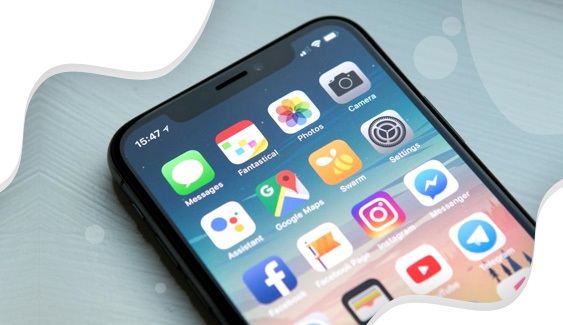5 Security Tips for Mac Users – Why You Need Them

Even though Apple and others have long touted Mac computers as incapable of getting viruses and other digital nasties, this is no longer the case.
To combat the threat level, Mac users should follow a few simple security steps. Here, we outline those steps and take a closer look at Mac threats in general.
Table of Contents
The threats Mac users face
Mac users who think their expensive computers are safe from rising cyber threats should reevaluate their security protocols. In fact, security research from 2024 showed that Mac threats were growing a full 400% faster than PC threats.
While Macs are less likely to be infected with some threats than PCs, this does not mean these computers are protected from all threats across the board.
One well-known security researcher even noted that adware, a Mac threat more common than malware in Macs, can cause far more damage than previously suspected. In addition, potentially unwanted programs (PUPs) can result in severe damage to a Mac computer.
Both PUPs and adware are often viewed as pesky annoyances and little more; however, they can and do substantially compromise a device’s functionality, and accordingly, the user’s data.
Adware can collect data about users’ location and browsing habits, a very clear privacy violation. PUPs, meanwhile, can cause Mac’s system to slow down and/or lead to other PUPs appearing on the computer, which in turn compounds the problem.
One recent report even showed that Apple had accidentally approved malware to run on certain versions of macOS. So while the company’s security standards are generally solid, Macs are not immune to digital threats.
The price divide
This is not to say that malware for Macs does not exist; it certainly does. Traditionally though, Macs had a smaller user base than PCs. One key reason for this difference in user base size is that Macs are more expensive than many PCs. A user can, for instance, purchase an entry-level PC for just a few hundred dollars.
Cybercriminals designed more threats for PCs because there are more PC users and, therefore, more potential targets. In recent years, though, Macs have become more popular and have gained a larger market share. While there are still more PC users, the difference in market share between Mac and PC has changed in the last five years.
If the price divide factor continues to change and Macs gain even more of the user base, we can expect further growth in the number of Mac threats.
5 Tips for Better Mac security
Now that we’ve reviewed some of the most persistent Mac threats and learned about the rise of Mac malware let’s look at a few tips. Each of these steps is easy to action and, in all cases, free or affordable.
Use a VPN when browsing
Virtual Private Networks (VPNs) are most often thought of as privacy tools. But while they do operate in that capacity, they also provide additional security at the same time. In fact, VPNs are increasingly viewed as essential parts of a full security strategy.
When you browse with a VPN enabled, the software generates a private browsing network, which shields your activity from any would-be snoops or hackers. Besides the security factor, one plus point for VPNs is that they make it easy to stream international content.
Be careful which apps you install
Mac users should only install new apps from the official Apple App Store. Downloading apps of questionable quality and intentions can lead to a whole spate of issues.
Unfortunately, though, Apple’s App Store can be compromised. In an ideal world, each app available on the Store is legitimate. However, a few bad apples in the form of fraudulent apps do sneak past Apple’s defenses from time to time.
When you download an app, take time to vet it properly. Check that it has been reviewed and that it matches the brand that released the app. For example, if you see a banking app that doesn’t look quite right, perhaps the colors, logo, and fonts look slightly off, don’t download it.
Choose third-party security solutions
Macs come with an in-built suite of security tools. This native system includes a firewall and antivirus, and antimalware protection. According to PCMag, though, this native system leaves a lot to be desired.
Mac users are better off turning to third-party security tools. While users will need to pay a small subscription fee for each software solution, they will receive better protection. At a minimum, users should look at antivirus, antimalware, and firewalls. Alternatively, users can opt for the first two options and then use the native macOS firewall.
Keep the operating system updated
Companies, including Apple, release updates to software programs and operating systems to fix known issues, among other reasons such as new functionalities. macOS is the operating system in Apple computers, and keeping it updated means your device is protected against the security issues Apple knows about.
Leaving your operating system running with known vulnerabilities is akin to walking out of the house and leaving your keys in the front door; it’s almost like inviting threats in.
Users should also keep all apps installed on their Mac computers updated and running the latest versions.
Make use of macOS’ security functions
While your Mac’s antivirus protection may leave a lot to be desired, it is not the only security feature on a Mac computer. Users should enable a few additional tools and functions to keep their devices safe and sound:
- The iCloud Keychain can safely store usernames and passwords across all users’ Apple devices, including their iPhone and Apple Watch.
- Apple’s FileVault is a disk encryption tool that encrypts data on a user’s disks so that even if the computer is lost or stolen, this information is protected.
- Safari’s Tracking Protection feature can stop third parties from collecting your data.
- Find My Mac helps users locate a lost or stolen device through Bluetooth tracking, even if the device is switched off or in sleep mode.
Follow the tips above for better Mac security in 2024 and beyond, and rest assured that your computer is being kept as safe as possible.





